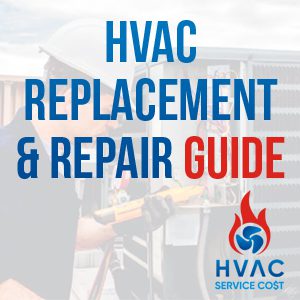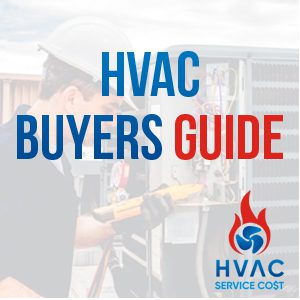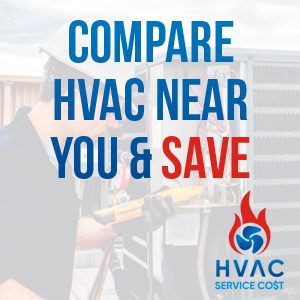
The Benefits of Upgrading to a High-Efficiency HVAC System
If you’re considering replacing your HVAC system, upgrading to a high-efficiency system is a wise choice. High-efficiency HVAC systems use advanced technology to provide better performance and energy efficiency than traditional systems. In this blog, we’ll explore the benefits of upgrading to a high-efficiency HVAC system and why it’s worth the investment.
COMPARE QUOTES NOWWhat is a High-Efficiency HVAC System?
High-efficiency HVAC systems are designed to use less energy than traditional systems while providing better performance. These systems achieve higher efficiency through advanced technology, such as variable-speed motors, multi-stage compressors, and smart thermostats. High-efficiency HVAC replacement systems are designed to be quieter, more reliable, and provide more even heating and cooling throughout your home.
Benefits of Upgrading to a High-Efficiency HVAC System
As homeowners, we all know that our HVAC systems play a critical role in keeping our homes comfortable throughout the year. However, many homeowners may not realize that their HVAC system’s energy efficiency can significantly impact their energy bills and their home’s overall comfort level. If you’re still using an outdated, low-efficiency HVAC system, upgrading to a high-efficiency system can offer numerous benefits.

Lower Energy Bills
One of the biggest benefits of upgrading to a high-efficiency HVAC system is lower energy bills. These systems use less energy to heat and cool your home, which can result in significant savings over time. In fact, high-efficiency HVAC systems can save you up to 30% on your energy bills compared to traditional systems.
Improved Comfort
High-efficiency HVAC systems are designed to provide more even heating and cooling throughout your home, resulting in improved comfort. These systems also provide better humidity control, which can help reduce indoor air quality problems and increase overall comfort levels.
Longer Lifespan
High-efficiency HVAC systems are designed to last longer than traditional systems. This is because they use advanced technology that reduces wear and tear on the system. In addition, high-efficiency systems often come with longer warranties, which can provide peace of mind and save you money on repairs over time.
Environmental Benefits
High-efficiency HVAC systems are better for the environment because they use less energy to heat and cool your home. This means they produce fewer greenhouse gas emissions, which can help reduce your carbon footprint and contribute to a cleaner environment.
COMPARE QUOTES NOWIncreased Home Value
Upgrading to a high-efficiency HVAC system can also increase the value of your home. These systems are attractive to potential homebuyers, and can even result in a higher sale price. Additionally, the energy savings from these systems may qualify you for tax credits or other financial incentives.

Reduced Carbon Footprint
High-efficiency HVAC systems are designed to use less energy, which can help reduce your carbon footprint. By reducing the amount of energy your home uses to heat and cool, you can help lower greenhouse gas emissions, reducing your impact on the environment.
Improved Indoor Air Quality
High-efficiency HVAC systems are equipped with advanced air filtration systems that can help improve indoor air quality. These systems can filter out dust, dirt, pollen, and other pollutants, ensuring that the air inside your home is cleaner and healthier to breathe.
In conclusion, upgrading to a high-efficiency HVAC system offers numerous benefits, including lower energy bills, improved home comfort, increased system lifespan, reduced carbon footprint, improved indoor air quality, and increased home value. If you’re still using an outdated, low-efficiency HVAC system, it’s time to consider an upgrade. Not only will it save you money on energy bills, but it can also improve the overall comfort and health of your home.
How Much Will a High-Efficiency HVAC System Cost?
While upgrading to a high-efficiency HVAC system can offer numerous benefits, it’s important to note that it can be a significant investment. The cost of a high-efficiency HVAC system will vary depending on several factors, including the size of your home, the type of system you choose, and the contractor you hire to install it. Here are some things to consider when determining the cost of upgrading to a high-efficiency HVAC system:
- System Type: The cost of replacing your HVAC system with a high-efficiency HVAC system will depend on the type of system you choose. A central air conditioning system can cost between $2,500 and $7,500, while a ductless mini-split system can cost between $1,500 and $5,000.
- Home Size: The size of your home will also impact the cost of upgrading to a high-efficiency HVAC system. Larger homes will require larger systems, which will cost more to install.
- Contractor Fees: The cost of installation will also vary depending on the contractor you choose. Be sure to get quotes from multiple contractors and compare prices to ensure you’re getting a fair price.
- Energy Efficiency Ratings: High-efficiency HVAC systems with higher energy efficiency ratings will generally cost more upfront but can provide more significant long-term energy savings.

Overall, the cost of upgrading to a high-efficiency HVAC system can range from $2,500 to $10,000 or more, depending on the factors mentioned above. While the upfront cost may be significant, the long-term savings from lower energy bills and increased system lifespan can make it a worthwhile investment.
COMPARE QUOTES NOWHow to Decide if a High-Efficiency HVAC System is Right for You
If you’re considering upgrading to a high-efficiency HVAC system, there are several factors to consider before making a decision. Here are some tips on how to decide if a high-efficiency HVAC system is right for your home:
- Compare Costs: Compare the expected energy savings of a high-efficiency system against the cost of installation to determine if it’s a worthwhile investment.
- Check Local Incentives: Check for local incentives, such as tax credits or rebates, that can help offset the cost of upgrading to a high-efficiency HVAC system.
- Research System Types: There are several different types of high-efficiency HVAC systems available, so research the various options to determine which one will best meet your needs.
- Talk to Professionals: Speak with an HVAC professional to get advice on choosing the right system and compare quotes from multiple contractors for a fair price.
Upgrading to a high-efficiency HVAC system can be a worthwhile investment, helping you save money on energy bills and improving your home’s overall health and comfort. Consider all the factors mentioned above to help you decide if a high-efficiency HVAC system is right for you.
COMPARE QUOTES NOW


Leave a Reply